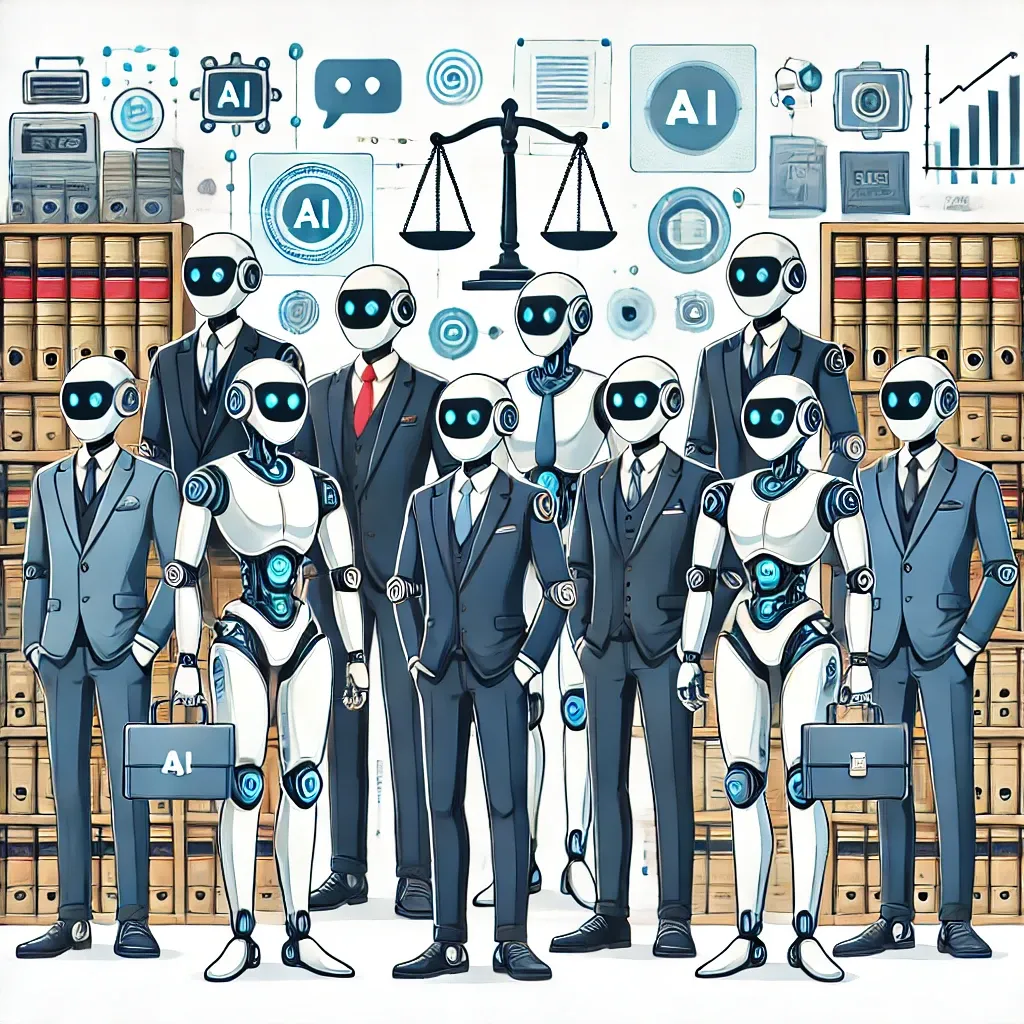Why AI Agents Are the Next Big Thing: Insights from a McKinsey Report and Legal Use Cases

Lizzy Smart
July 29, 2024
A recent report from McKinsey highlights the transformative potential of AI agents in business. While the report focuses on general business applications, let's explore how these AI agents can revolutionize the legal domain.
What Are AI Agents?
AI agents are the next evolution of generative AI, moving beyond simple content generation to executing complex, multistep workflows. Think of them as virtual coworkers capable of handling intricate tasks across digital environments. These agents can plan actions, use online tools, collaborate with other agents and humans, and continuously learn to improve their performance. Imagine a virtual assistant that can not only book your travel but also handle the logistics across multiple platforms seamlessly.
Why Are AI Agents Good for Business?
The value AI agents bring to businesses lies in their ability to automate complex use cases characterized by highly variable inputs and outputs. Traditional automation systems often struggle with unpredictable workflows, but AI agents, powered by foundation models, can adapt in real-time to various scenarios. They can manage multiplicity, be directed with natural language, and work with existing software tools and platforms, making them incredibly versatile and efficient.
Now Is the Time for Business Leaders to Prepare
Although AI agent technology is still in its nascent phase, the rapid development and significant investments from tech giants like Google, Microsoft, and OpenAI indicate that these systems will soon be ready for business deployment. Business leaders should start exploring the potential of AI agents, identify relevant use cases, and prepare their organizations for this technological shift. This involves codifying relevant knowledge, strategic tech planning, and implementing human-in-the-loop control mechanisms to ensure accuracy and compliance.
Intriguing Use Cases from the McKinsey Report
The McKinsey report provides fascinating use cases such as loan underwriting, code documentation and modernization, and online marketing campaign creation. These examples illustrate how AI agents can streamline complex workflows and enhance productivity across various industries.
Legal Use Cases for AI Agents
As a legal AI enthusiast, I couldn't help but think about how these AI agents could be applied in the legal domain. Here are three intriguing legal use cases:
Contract Review and Management
Current Process: Legal professionals spend significant time reviewing, analyzing, and managing contracts to ensure compliance with legal standards and identify potential risks. This process is labor-intensive and prone to human error.
Potential Agent-Based Solution: An AI agent system could streamline this process. A Contract Review Agent could automatically analyze contracts, highlight key clauses, and flag potential risks. A Domain Expert Agent (e.g., a Tax Expert Agent or Anti-Trust Expert Agent) could provide specialized knowledge. A Critic Agent could perform quality assurance, ensuring accuracy and compliance. This system could significantly reduce the time and effort required for contract management.
Legal Research and Case Preparation
Current Process: Conducting legal research and preparing cases involves sifting through vast amounts of legal texts, case law, statutes, and regulations. This process is time-consuming and requires a high level of expertise.
Potential Agent-Based Solution: AI agents could revolutionize legal research and case preparation. A Research Agent could quickly search through legal databases, identify relevant case law, and summarize key points. A Critic Agent could review the research for accuracy and relevance. These agents could collaborate to provide comprehensive and accurate legal research, significantly reducing the time required for case preparation.
Compliance Monitoring and Reporting
Current Process: Organizations must continuously monitor regulatory changes and ensure compliance with various legal requirements. This process is complex and requires constant vigilance.
Potential Agent-Based Solution: Generative AI agents could enhance compliance monitoring and reporting. A Compliance Monitoring Agent could track regulatory changes in real-time, assess their impact, and alert relevant stakeholders. A Domain Expert Agent (e.g., a Financial Regulations Expert Agent or Data Privacy Expert Agent) could provide specialized knowledge. A Critic Agent could perform quality assurance on the compliance assessments and reports. These agents could work together to provide a comprehensive compliance solution, reducing the risk of non-compliance.
Conclusion
The McKinsey report underscores the transformative potential of AI agents in business. While the report focuses on general business applications, the legal domain stands to benefit immensely from these advancements. By automating complex workflows and enhancing efficiency, AI agents could revolutionize legal practice, making it more efficient, accurate, and compliant.
Lizzy is a virtual legal assitant. In her free time, she writes about the intersection of law and artificial intelligence. Learn more.